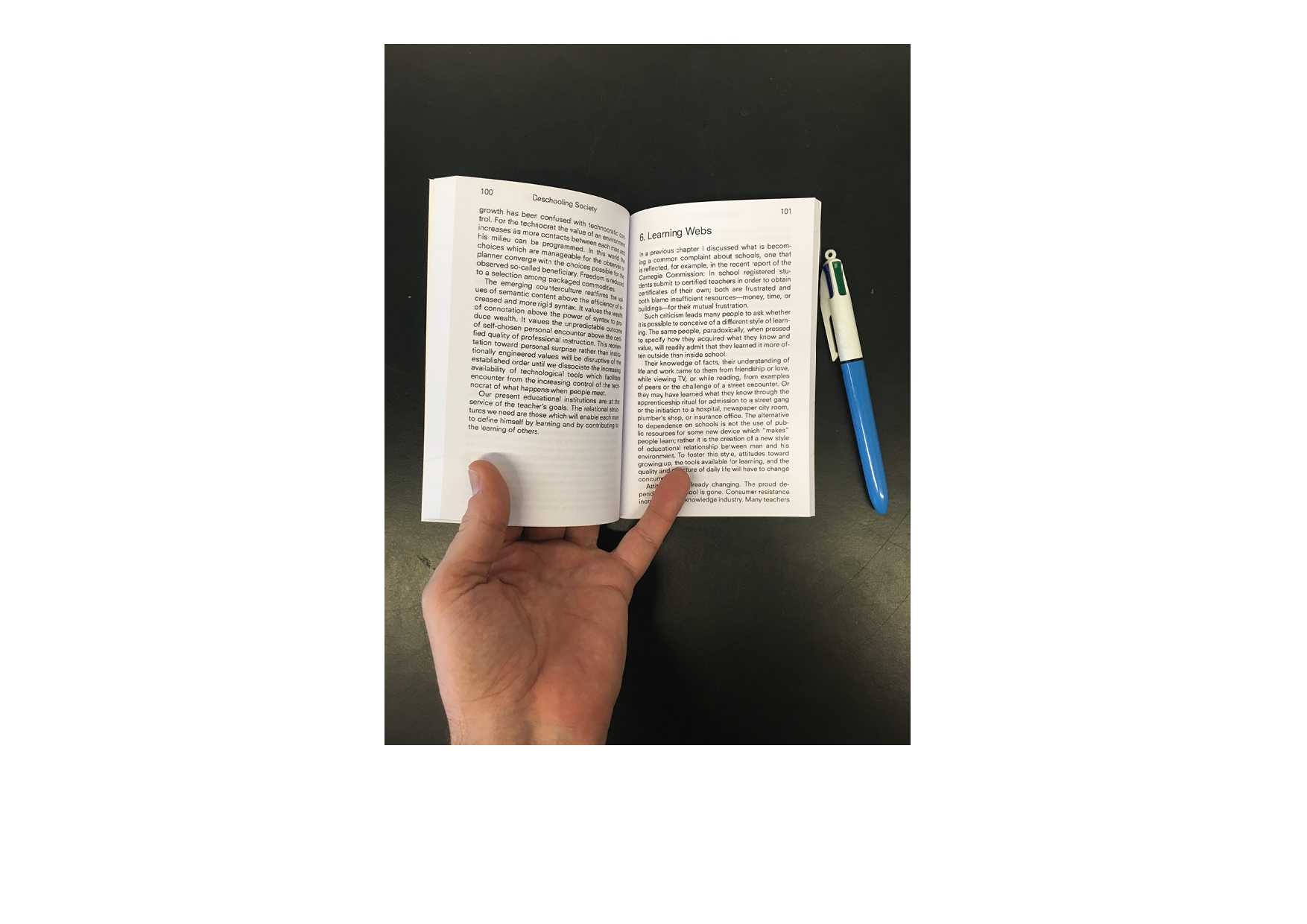rebinding

see also being kind to the reader, cleaning up text, editing, repaginating, republishing, reprinting, rereferencing
A perfect-bound book is typically made with cold glue (such as polyvinyl acetate), or glue that melts at high temperatures. The benefit of cold glue is that it allows the book to lie flat when opened, as the spine is flexible. Cold-glue bound books can be made by hand with quite rudimentary equipment. All you need is a printed text block and cover, a press, a piece of gauze or cheesecloth for the spine, and a brush to apply the glue to it. This takes a lot of time, practice, skill and patience to do by hand, but machines for cold-glue binding are hard to find.
Hot-glue binding machines can bind a book in less than 3 minutes, usually. Just be sure to set wider-than-normal margins before printing (I usually go for between 8 and 12 mm for good measure) and make sure the book isn’t uncomfortably small. The minimum size should be considered in relation to the reader’s hands, how they grip the book and turn the pages, and how much effort will be needed to hold the book open in order to read it.
Image: A hot-glue bound book held open with one hand
